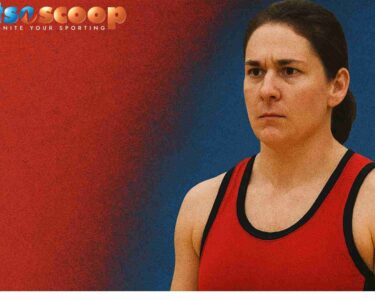The use of a drone to spy on the women of the New Zealand team before a pre-tournament training session at the Paris 2024 Olympics not only led to sanctions but also exposed what Canada Soccer now describes as a trend of unacceptable culture and poor oversight within its national programmes. The scandal has sparked investigations, fines, dismissals, and reignited discussions on ethics, leadership, and trust in Canadian soccer.
The Incident That Sparked the Storm
Late in July 2024, the Canadian women’s football team will be in Group A at the Paris Olympics alongside New Zealand. New Zealand had previously complained that a drone, operated by one of the Canadian technical staff, had flown over one of their closed training sessions before their first match. This led to a formal complaint to the tournament organisers.
FIFA imposed a six-point deduction in the group stage and a one-year ban on participating in football-related activities on three officials, including head coach Bev Priestman, assistant coach Jasmine Mander, and analyst Joseph Lombardi, who allegedly flew the drone, as part of Canada’s punishment. Canada was also fined. However, these penalties did not prevent the team from reaching the knockout rounds, where they were eliminated in the quarterfinals.
A Pattern, Not a One-Off
What caused this scandal to escalate was the fact that the independent review also showed this was not a one-off incident. Kevin Blue, the CEO of Soccer Canada, admitted that the incident was a symptom of a broader culture of questionable practices. There was some evidence that drone operation and other unconventional surveillance methods had already been used previously on both men’s and women’s programmes.
Such tactics were apparently regarded as normal or even necessary to gain a competitive advantage, as indicated in internal communications.
Fallout and Consequences
The scandal has had serious consequences. In addition to point deductions and fines, Bev Priestman lost her position after the review. To restore credibility and prevent similar incidents in the future, Canada Soccer announced that significant changes would be introduced.
The reforms should include increased regulation, revised codes of conduct, and mandatory ethics training for coaching staff and analysts. Canada Soccer has also committed to improving transparency and establishing more secure systems for reporting misconduct by staff and players.
Players Cleared but Impacted
Research established that players had no role in utilising or exploiting the drone footage, which assisted them in evading punishment. Nonetheless, this scandal could not help but impact the effective work of the team and confidence.
Numerous players said they were torn between their commitment to their coaching staff and the frustration of being associated, however, with unethical behaviour. This brought to the fore larger issues of power within teams and whether or not people feel empowered to voice concerns against questionable decisions.
The Bigger Picture: Integrity vs. Pressure to Win
This episode highlights a larger conflict in high-level sports: the obsession with winning at all costs. According to the Canadian employees, the reason for drone spying was a competitive necessity, which reflected a mindset that blurred the line between innovation and misconduct.
Improved governance and oversight have also gained attention because of the scandal. Clearly defined ethical policies, enhanced whistleblower procedures, and external audits of team activities will be crucial in restoring trust.
Rebuilding Trust and Reputation
Canada Soccer is currently facing the challenge of moving forward and restoring its tarnished image. To accomplish this, the organisation has implemented several strategic reforms, including structural changes, cultural transformation campaigns, and enhanced oversight of coaching practices.
Key measures involve solidifying codes of ethics to clearly distinguish acceptable from unacceptable scouting practices, establishing whistleblower channels to allow employees and players to report violations without fear, and introducing independent oversight through third-party reviews to ensure accountability. Additionally, culture change programs aim to educate leadership on the importance of integrity and performance, fostering a more transparent and ethical environment.
A Defining Moment for Canada Soccer
The concern regarding drone surveillance extends beyond any individual coach or team; it pertains to the cultural standards that Canadian soccer aims to uphold. It has forced the sport’s governing body to confront uncomfortable truths about its history and reconsider how it balances competitiveness with ethical responsibility.
If Canada Soccer honours its commitments, this scandal could serve as a turning point, strengthening the organisation in the years to come. However, if reforms are superficial or slow, it may take much longer to rebuild the trust of fans and the confidence of players.
Ultimately, this situation reminds the sporting world that winning is about more than just the scoreline; it is also about the integrity of the game itself.




